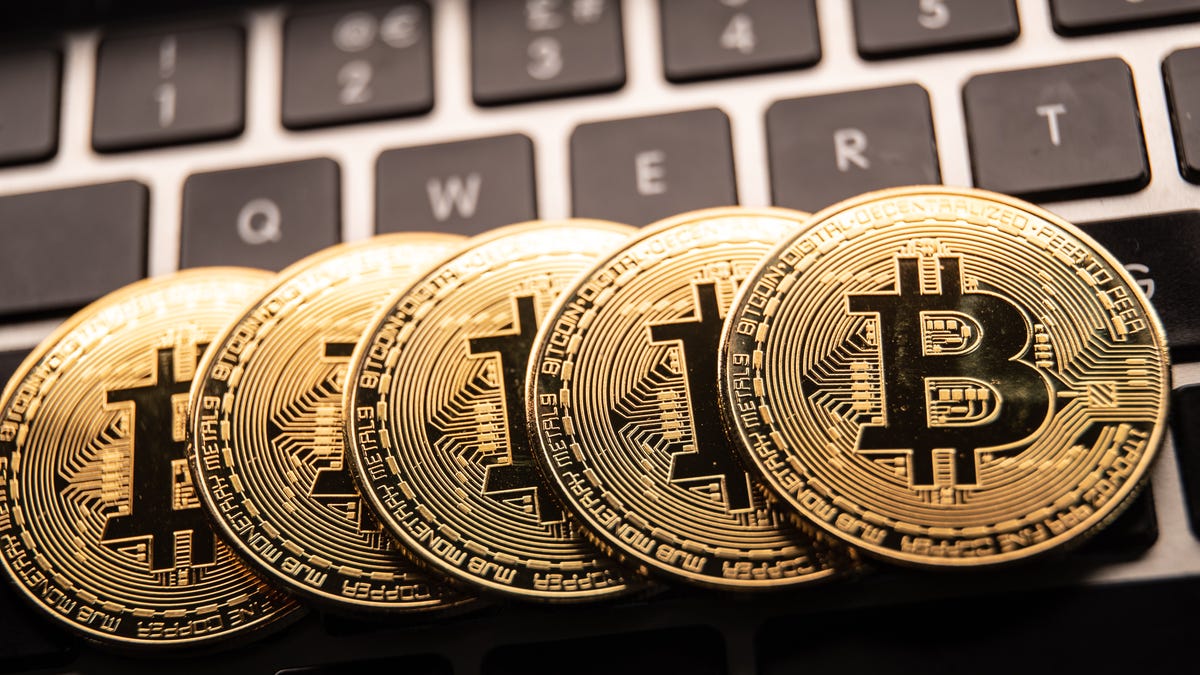Crypto and NFTs Are Funding Ukraine's Resistance Against Russia
Alex Bornyakov, deputy minister of digital transformation for Ukraine, tells CNET about the digital war being fought with online volunteers.

Supporters have flooded Ukraine with cryptocurrency donations.
An explosion jolted Alex Bornyakov from his sleep at 6 a.m. one morning in late February as Russia invaded Ukraine. Over the next two days, Ukraine's deputy minister of digital transformation endured a marathon of sirens, shellings and stretches in bomb shelters in Kyiv, the capital.
The invasion, which has led to hundreds of civilian casualties and has put major Ukrainian cities at risk, transformed his job overnight. Prior to this, he fostered the country's Silicon Valley-style tech hub and worked to improve digital literacy. Now his main focus is defending the country's telecommunications infrastructure from Russia's bombardment. Bornyakov has since relocated to an undisclosed location within the country away from the war zone.
"But even here, there are sometimes sirens so we have to go and hide," he said in an interview over Zoom. "But it's safe. We're good."
One of his previous responsibilities -- getting the nation to embrace cryptocurrency -- has proven valuable. Within days after the initial invasion, Mykhailo Federov, the country's vice prime minister, tasked Bornyakov with setting up a fund and publishing information about it on Twitter. The result was a flood of backing from supporters around the world. The government said it has raised around $53 million in crypto.
Alex Bornyakov, deputy minister of digital transformation for Ukraine, talks about crypto and NFTs.
The funds accumulated by Ukraine underscore the ever-increasing importance of cryptocurrencies in the midst of an international conflict and humanitarian crisis. Unlike traditional currency, crypto, such as bitcoin, ether and tether, is easy to move around and isn't backed by a commodity. Wire transfers can take days to clear -- a cryptocurrency transfer takes a few minutes.
That speed has been key to turning those funds into bullets, helmets, night vision goggles, medical supplies and food rations to aid in the defense of Ukraine.
"We so appreciate the support," Bornyakov said.
NFTs next
While Ukraine focuses on conventional cryptocurrency to raise funds, Bornyakov also laid out his vision for how the country would eventually distribute NFTs, or non-fungible tokens, to raise additional money.
The country plans to create a sort of museum of war made up of a daily news story combined with art, video or some other media, which would be its own unique NFT. The NFTs, which are tokens recorded on a blockchain, would be sold to supporters. Bornyakov mentioned Russia's bombardment of a maternity ward in the southern Ukrainian city of Mariupol as a moment that could be memorialized as an NFT, with NFTs set from day zero to the end of the war.
"So we never forget what happened," he said.
While Ukraine has made great use of cryptocurrency, the country has been proactive in requesting that crypto exchanges cut off Russian customers, something the exchanges have rejected. The exchanges say that they're following the law, but don't want to cut regular Russians off.
"I understand their position, but we disagree with them," said Bornyakov, who argued that they need to recognize that a lot of the funds going through those exchanges are corrupt. "The moral responsibilities for the exchanges and all crypto companies that support democratic values, humanitarian values, [are] to ban as much of this effort as they can."
Ukraine's IT Army
Ukraine has had a strong base of tech workers, with hundreds of thousands employed by Fortune 500 companies, Bornyakov said. So when the invasion began, the government was flooded with requests from IT workers asking how they could help.
Under an initiative from Federov, the government set up a Telegram channel with a prioritized list of assignments for anyone with technical savvy. The assignments often involve organized attacks designed to take Russian sites offline.
Bornyakov said targets include the Russian stock exchange and government services, as well as its digital infrastructure, noting that 300,000 people have joined the digital army.
Most are Ukrainian, but he added that people and organizations from around the world have joined and stand with the country.
"They're still active now," he said.
For the full interview with Alex Bornyakov, please listen to the three-part Daily Charge episodes that run through Thursday.

